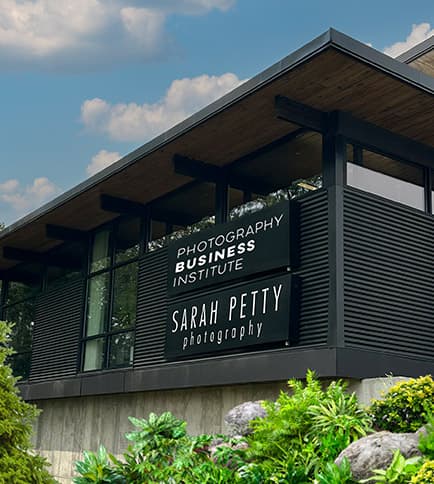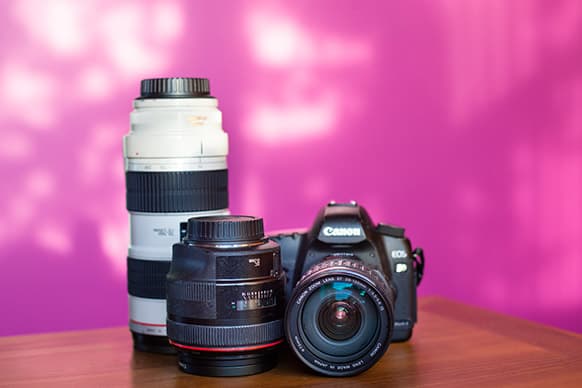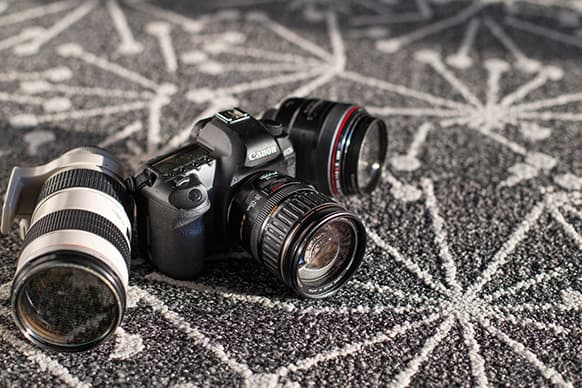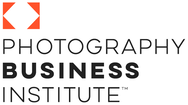Starting a Photography Business from Home
You’re that person–the one whose family or friends can always find behind a camera. You’re at every party snapping photographs of your loved ones.

AS SEEN IN





AS SEEN IN


Making the switch from hobbyist to professional photographer is a big decision, but starting a photography business from home offers many benefits, including flexibility with your time, better work and home life balance, the chance to express yourself creatively, and even the opportunity to make more money for yourself and your family. If you are overwhelmed or have questions about getting started, the Photography Business Institute is the perfect place to turn.
The Photography Business Institute offers coaching and mentorship for professional photographers. We can help you whether you want to start or advance your portrait photography business.
Our expert coaches offer feedback and business advice. Founder Sarah Petty is the New York Times Best-Selling author of Worth Every Penny: Build a Business That Thrills Your Customers and Still Charge What You’re Worth and was named one of America’s Most Profitable Portrait Photographers by Professional Photographers of America.
If you are thinking about starting a photography business from home, get in touch with us today.
Why Start a Photography Business from Home?

You may feel unsure, intimidated, or overwhelmed by everything you need to learn about starting a portrait photography business. However, you don’t have to do it all alone. Our coaches can help.
With coaching and mentorship at Photography Business Institute, you’ll receive feedback and guidance on how to create images you’re proud of, the ins and outs of managing a business, marketing techniques and strategies that work, and how to make an actual living doing something you love. Let’s take a look at some of the many benefits of starting a photography business from home.
1. Freedom and Independence
Being a small business owner will make you your own boss and provide more freedom and independence than a typical nine-to-five job. For stay-at-home moms and people with other commitments at home, running a small business can help you create a better work-life balance.
Having career independence and working for yourself can feel rewarding and empowering. Being a business owner allows you to choose the creative projects you want to take on and set your own pricing. Starting a photography business from home will give you control over your financial freedom.


2. Flexibility
One of the best reasons to start your own business is the flexibility that comes along with it. Being a small business owner allows you to be flexible with your schedule, projects, and clients, and being self-employed means you can work from anywhere.
If you love to travel and don’t want to be stuck in an office every day, photography can allow for that freedom. If you need to work around your children’s school days and extracurriculars, a photography business will let you set your own schedule and make that easy. When you’re not in the studio or on location for a session, the editing, emailing, marketing, and other administrative work can be done from anywhere and at any time. Even with just a few free hours a day, it is still possible to start bringing in extra money and sharpening your creative and business skills.
3. Extra Income
If you’re considering starting a photography business, you are likely interested in making extra income. Whether you want to work part-time or are curious about making photography a career, a photography business can be lucrative both as a side hustle or a full-time gig.
It takes time to build up your client base and to create a professional reputation, but coaching through Photography Business Institute can give you a boost above the competition.


4. Creative Expression
Photographers are creative professionals. What brought you to photography in the first place was most likely a love for the art that goes into it. How amazing is it to be able to turn your passion into something that brings in an income?
While business management skills are a crucial part of starting any business, an interest in expressing your creativity and exploring the art of photography is also essential in this field. Seek out inspiration for new projects in museums, galleries, magazines, and on social media accounts.
Experiment with new ideas, angles, lighting techniques, and locations, and tap into your artistic side whenever possible. The more you let your creativity run free, the closer you’ll get to developing your own unique photography style.
5. Meeting New People
From networking with local business owners, meeting photographers in workshops, and collaborating with other creative professionals, there are many different opportunities to increase your social circle while running your photography business.
Much of a portrait photographer’s job is done alone and at the computer. This includes image editing, client emails and communications, scheduling, marketing, accounting, and other administrative tasks. However, the connections and friendships you make can provide much-needed support and encouragement.


6. Job Security
Portrait photography will always be in high demand. What family doesn’t want heirloom family photographs to remember the milestones and growth of their loved ones? With a beautiful portfolio, strong brand, and solid marketing strategy, your photography business will always attract new clients.

The Boutique Business Model
The most common portrait photography business model is the digital file business model, yet it’s the least profitable and not very family-friendly. At Photography Business Institute, our professional photography coaches believe in the value of following a boutique business model, a lesser-known but immensely more profitable and family-friendly option.
The differences between the two business models are similar to how fast food and fine dining restaurants differ. The digital file model is a fast food model. It is very focused on price, offering affordable packages that include giving digital images to your clients. It’s fast, cheap, and mediocre. These days, this is the most commonly used business model, and you will find a lot of competition from local photographers using this model no matter where you’re located.
This is not a drive-through, digital download experience. With in-person, personalized image presentations and one-of-a-kind custom-created wall art pieces, your clients will be excited to invest more money in your business and your craft.
Taking the First Steps
Unless you have a background or education in business, you may be intimidated by the idea of starting a photography business from home and unclear about where to start. The coaching and mentorship you’ll receive at Photography Business Institute is designed to meet you where you are, whether you are a brand-new beginner photographer or a more experienced professional.
If you’re ready to take the first steps, consider what you need to start a photography business:
1. Branding Your Business
Branding is an important part of starting any business, but getting the branding right is crucial for photographers who follow a boutique business model. If you want to attract clients who value premium art and are happy to make premium investments, how you brand your business will bring the right clients to you and justify the investments they make.
If you are wondering where to begin, branding your business is a good place to start. But what does that mean, exactly?
Branding a business means creating a consistent look, tone, and feel. A strong brand is reflected in every element of your portfolio, website, logo, and marketing materials and will influence a client’s decision to choose one photographer over another.

Effective branding starts with clear decisions about what kind of photographer you are and what makes your business unique. Branding decisions can make or break creative businesses and a strong brand helps build your reputation. When you’re happy with the identity you’ve chosen, you can start to make decisions about your business’s color palette, logo, fonts, graphics, etc. with the help of a professional graphic designer.
Consistency across all marketing materials, websites, and social media is crucial to establishing a recognizable brand and attracting your ideal clients. A strong, recognizable brand can help your clients justify your premium prices. It’s important to remember that the branding of your photography business will not appeal to everyone, and that’s okay.

2. Finding Your Ideal Clients
Identifying your target market is a big part of getting started for any business owner. When you know who you want to reach, it is easier to make decisions about the look and feel of your brand. Every decision you make about the website, logo, portfolio images, colors, messaging, and more should be aimed to attract and appeal to your ideal clients.
Create clear profiles of your ideal clients and who you want to market your business to. Get as specific as possible. This can start with your ideal clients’ ages, family situations, the industries they work in, etc. From there, go even deeper. Consider what a day in the life of your ideal clients looks like, including their interests, hobbies, and what they do in their spare time.
3. Choosing the Perfect Business Name
Choosing the best name for your photography business can be a lot of fun, but getting it right is also very important. A great business name goes a long way in building credibility and trust with your potential clients.
While many photographers use a variation of their own name, the different possibilities are endless. If you’re feeling overwhelmed by all the options, here are some top tips for choosing the perfect photography business name:
Write Down Everything that Comes to Mind
Writing down every name in a brainstorming session is important, no matter how bad and outlandish you find the ideas. Something that seems like a definite no to start with may become a favorite by the end of the session. Don’t judge any idea too quickly.

Consider What Makes You Different
Your business name is a part of your brand and your business identity. Your name should reflect the look and feel you are trying to present. If you follow the boutique business model and want to charge boutique premium prices, you don’t want your name to sound too cutesy or vanilla.
When choosing the perfect name, think about what makes your photography business different from the others in your area. Consider using a name that is personal and has special meaning to you or your family.
Keep Things Short and Memorable
The name of your photography business should be easy to remember. You want your clients to be able to spread the word about you and bring in referrals, so make it easy for them by keeping your business name on the shorter side.
Look into Other Photography Businesses
You don’t want to settle on your favorite name and then find out there’s another photography business in your area using the same one. Before making up your mind, do extensive research on available website domains and other local companies.
Ask for Feedback
Similar to picking baby names, it’s best to wait until you’ve narrowed down the list to a select few options before you start asking for the opinions of others. Once you have your top picks, gather a couple of people you trust and see what they think.

4. Gear and Investments
One of the first things to check off the list when you’re getting started is purchasing the necessary photography equipment and making initial investments. If you’re just beginning as a business owner, your budget may be tight. If this is the case, here are some of the most important things to buy as early as possible.
Photography Equipment
Obviously, the first thing you’ll need is a professional camera. Whether you prefer Canon, Nikon, Sony, or others, a professional camera is imperative for starting a photography business.
The next thing you will need is a portrait lens. Every photographer is different, and the best lens for capturing portraits is subjective. However, some great first-lens recommendations include a 16-35 mm lens for wider perspectives, a 24-70 mm workhorse lens that can get you by in nearly any situation, and a 70-200 mm lens that will give you that professional, depth-of-field look.
Another piece of photography equipment you may not have considered is a reflector. Before diving into studio lighting equipment, a reflector can help you understand light and enhance your images professionally.
Technology
First, you need a reliable computer with plenty of storage space and processing power. Your computer will be the central hub of your photography business and is worth a good investment.
From here, you’ll want to purchase professional photography processing software, including Adobe Photoshop and Adobe Lightroom. To keep all of your images safe and secure, invest in and familiarize yourself with external hard drives and a cloud storage system for backing up your backups.
Licensing
One of the less fun and glamorous steps you’ll have to take when you’re just getting started is making everything legal and secure with licensing and business insurance. Once you’ve decided on a business name, register your business with the state where you operate.
While business insurance may not seem like a big deal initially, you’ll be glad you made the investment if any issues arise. There are venues that will not let you work without proof of proper business insurance.
Coaching
There are different options when it comes to photography business coaching. At Photography Business Institute we offer mentorship suited for beginner photographers all the way to advanced professionals.
Great mentors can have a huge impact on your craft and business practices. Learning from other professionals can give you a leg up in the industry.
These investments are just the tip of the iceberg when starting a photography business. If you are ready to get started and want to learn more, check out our coaching sessions and workshops.

Learn More and Get Started Today
When you work with Photography Business Institute, whether you are ready to open a new business or want to grow and expand, our expert coaches offer support.
Our Camera to Cash 4-Week Workshop is for those who want to improve their photography skills. They give you the confidence to start charging money for your photography, and to develop skills in creating, editing, and sharing images that will make you proud.
Photography Business Institute offers individualized coaching and consistent feedback. And the best part is, you won’t have to do it alone. Our community of passionate, like-minded photographers and instructors provides countless opportunities for collaboration, camaraderie, networking, and encouragement.
